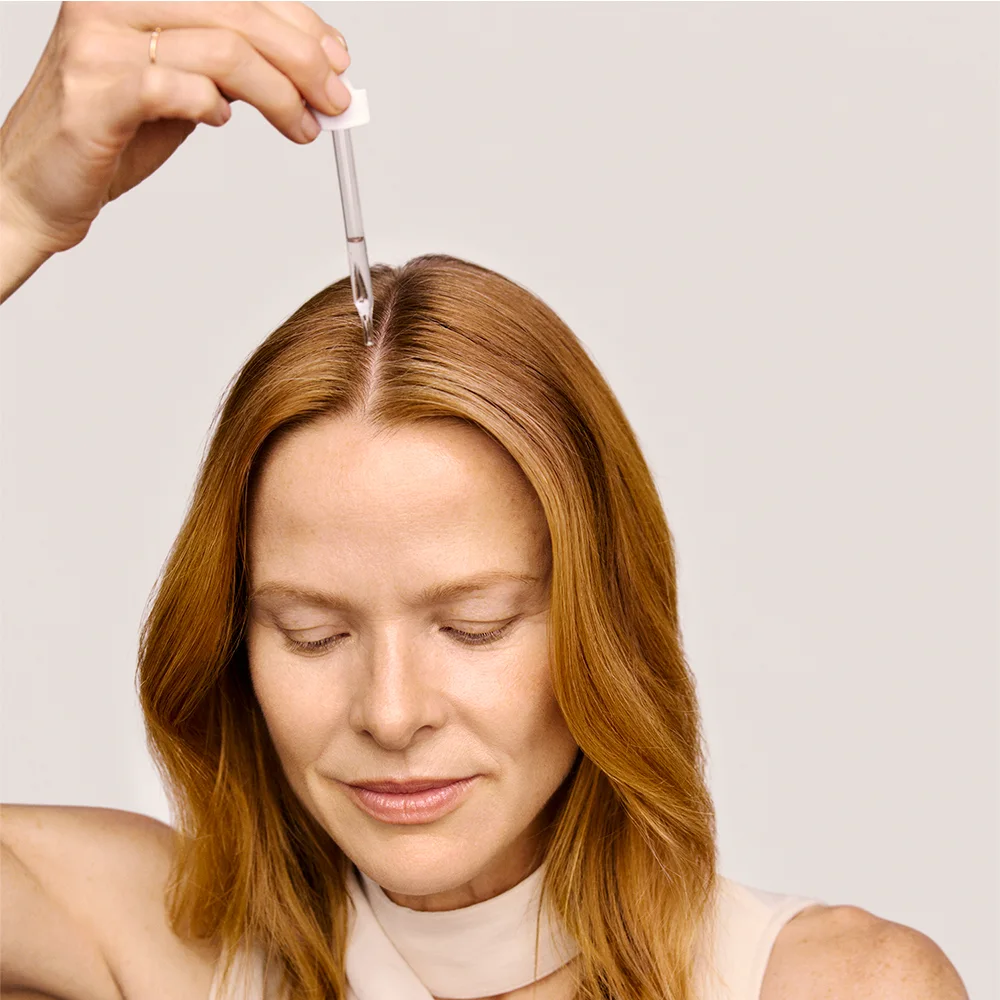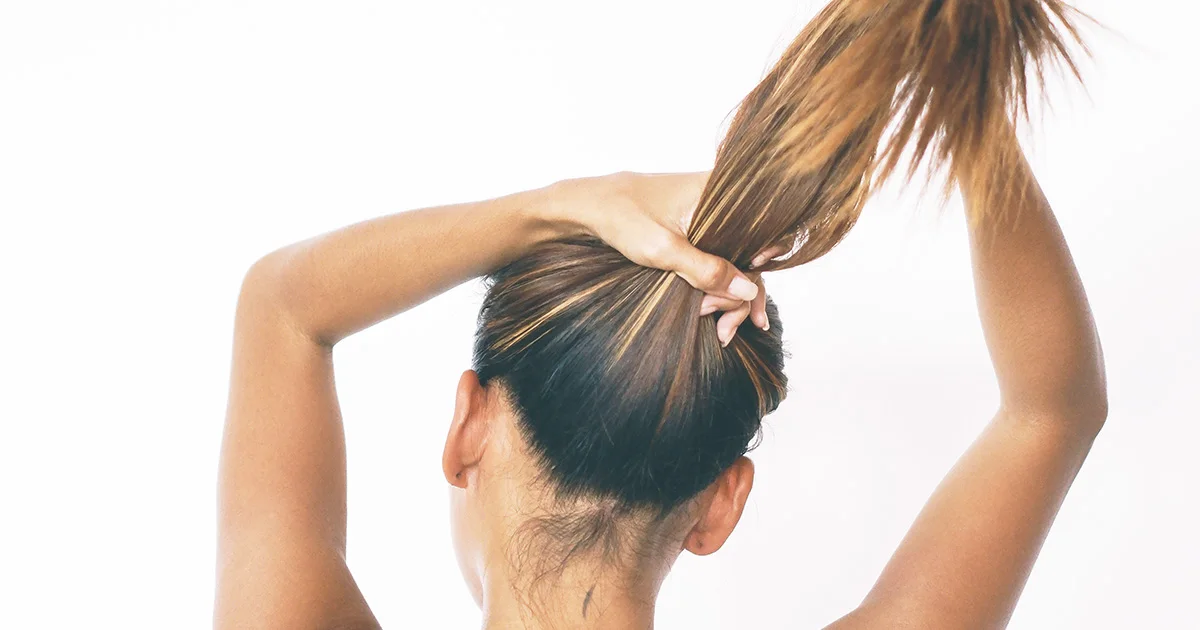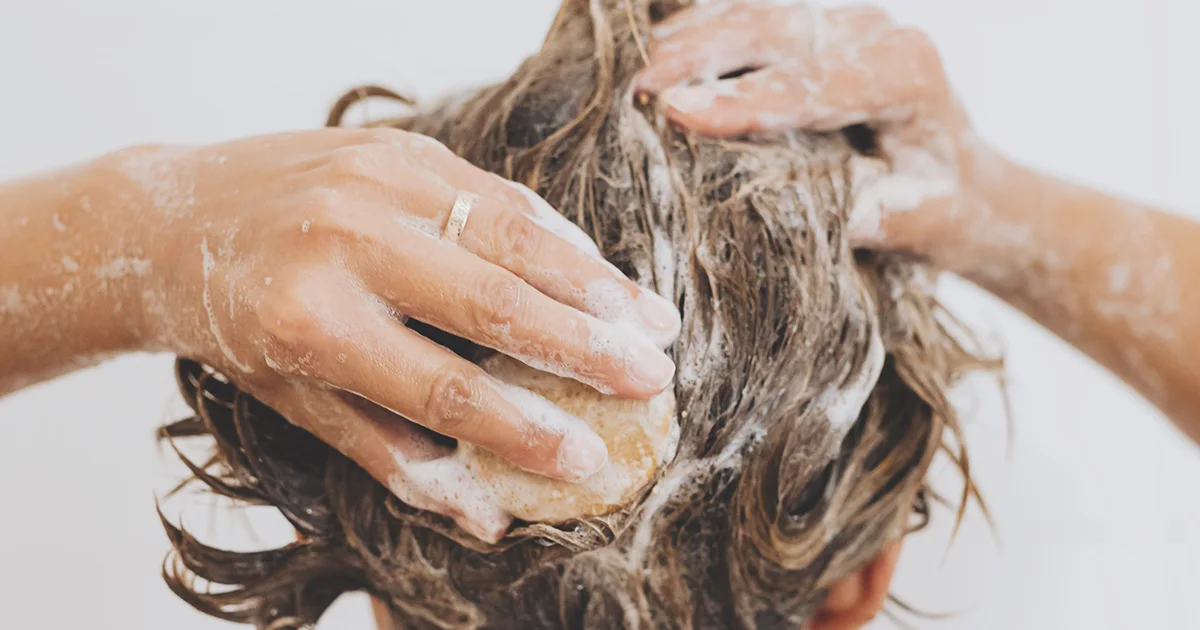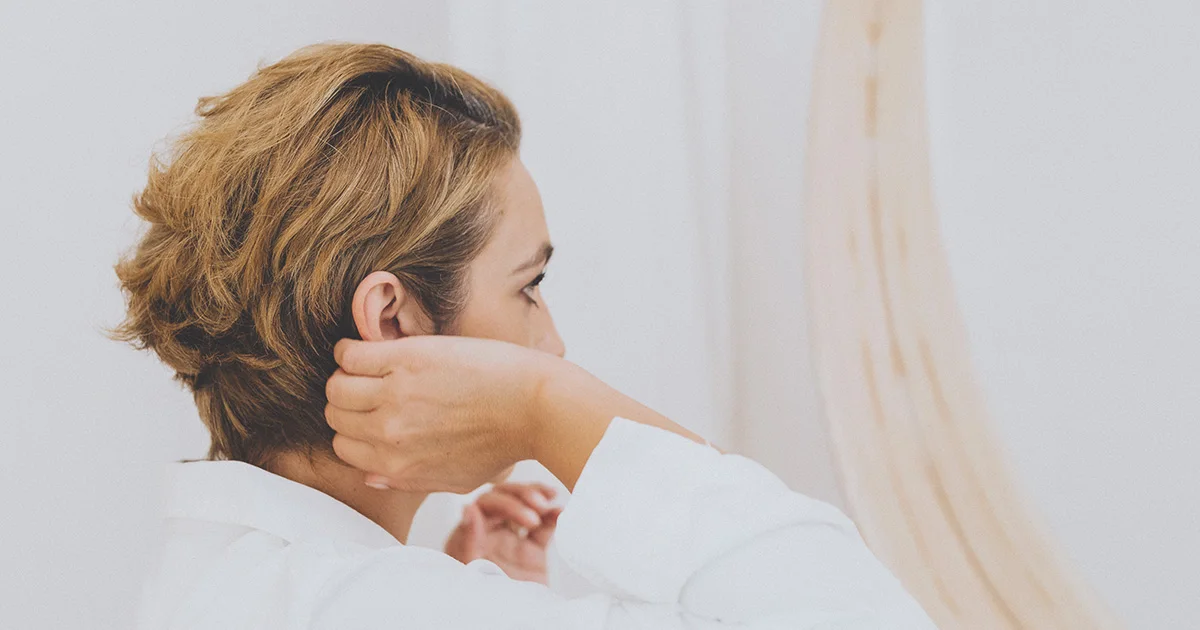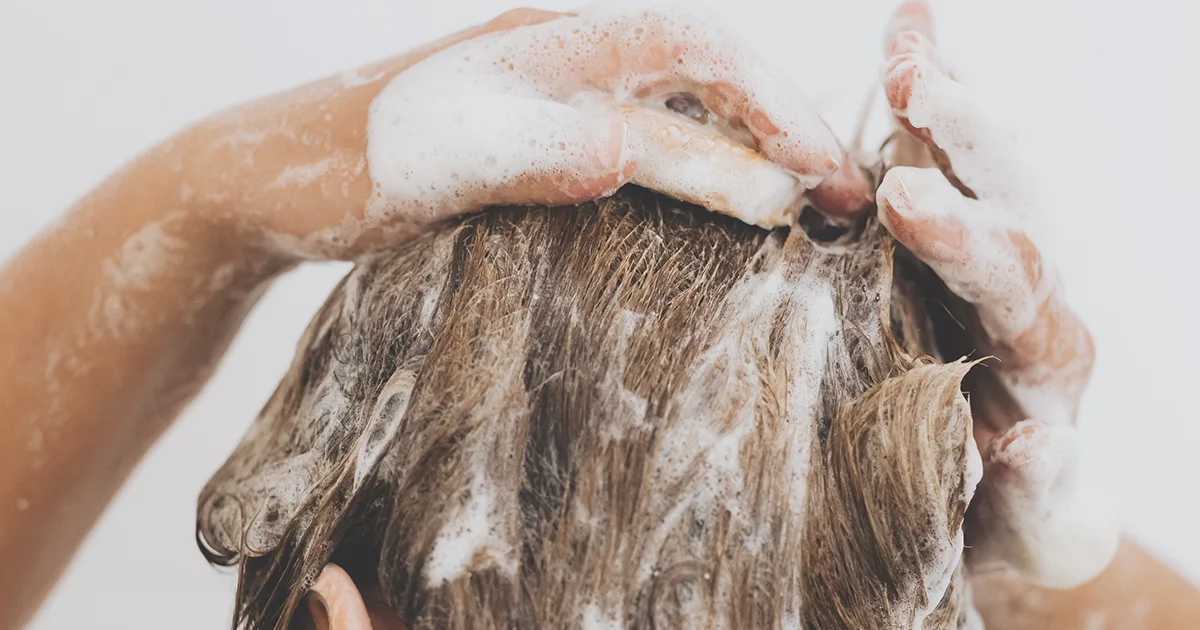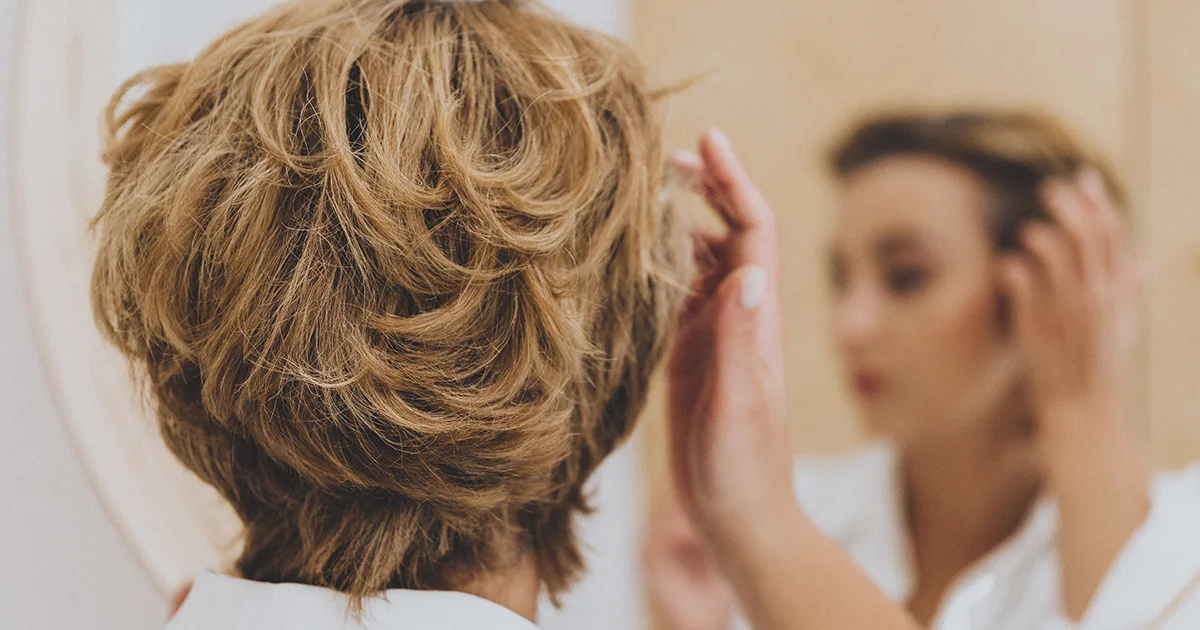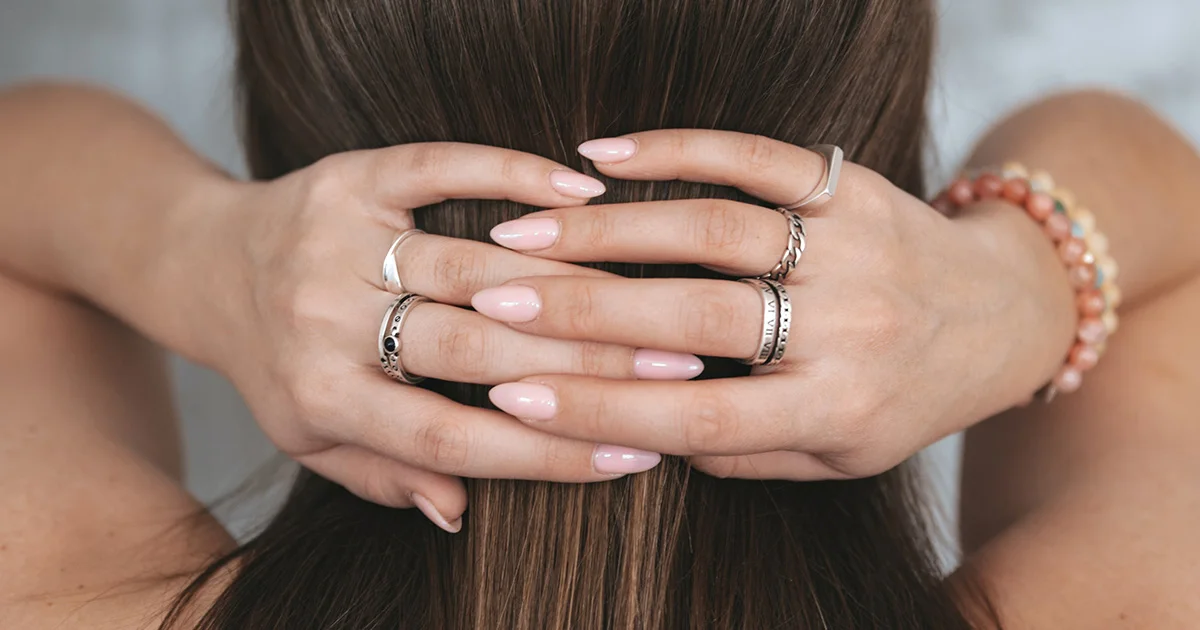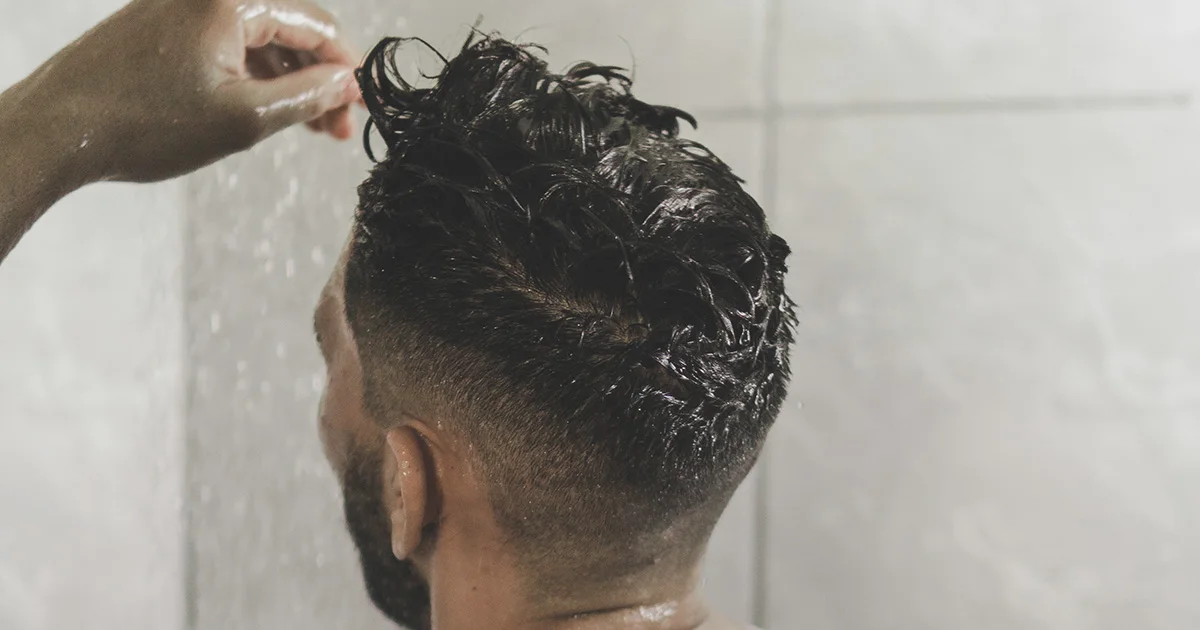Here's what we'll cover
Here's what we'll cover
We’re always chasing ways to make our hair look as good as it does in those Pantene commercials. Oils, special conditioners, biotin supplements—you name it.
Rice water for hair growth is the latest beauty trend, but its roots (pun intended) go back further than you think. Using rice water for hair care originated during the Heian Period in medieval Japan. Ladies of the court combed their hair every day with rice water, which they called Yu-Su-Ru. They attributed their beautiful hair, which was so long it reached the floor, to this daily treatment (Inamasu, 2010).
How to make rice water
Making your own DIY rice water treatment is fairly simple—and you can get started on dinner at the same time. Talk about two birds, one stone.
Another plus about rice water is there are only a few ingredients. All you need is rice and water. Here are three different ways to prep your rice water rinse (in order from shortest to longest):
Soaking: Rinse half a cup of uncooked rice, and then place in a bowl with 2-3 cups of water. Let it soak. After 30 minutes, strain the rice water into a new bowl.
Boiling: This method takes longer. Pour the uncooked rice into a pot, and cover it with two cups of water. Cook for the recommended time. Once cooked, strain the rice water into a new bowl.
Fermenting: This method takes the longest but may have additional benefits. One study found fermented rice water may prevent the growth of Malassezia, a fungus that causes dandruff. To get fermented rice water, you cook the rice as usual and then strain the remaining rice water into a new bowl and cover it. Leave it at room temperature overnight to ferment (Kumar, 2013).
How to use rice water for hair
Now that you have a bowl of freshly prepared rice water, here are two ways you can incorporate it into your hair care routine.
Replace your traditional conditioner. After shampooing your hair, rinse thoroughly and then pour the rice water on. Massage it into your hair and scalp, and leave it on for 5-20 minutes. Rinse thoroughly.
Use it as a hair mask. After shampooing and conditioning your hair, apply the rice water directly to your scalp and massage it in. Leave it in for 5-20 minutes. Rinse thoroughly.
Try your rice water hair rinse twice a week and see what it does for your hair health.
Does rice water help your hair grow?
That starchy liquid that remains after you cook rice or leave it to soak has garnered almost mythical attention. Some use rice water believing it helps hair grow and makes it smoother, shinier, and stronger. But what does the science say?
Applying rice water to your hair does reduce surface friction and increase elasticity, according to one study. This may make your hair smoother, less prone to breakage, and easier to manage and style (Inamasu, 2010).
Another study looked at the effects of inositol (a type of sugar found in rice water) on hair damage. Inositol penetrates and remains in the hair after rinsing, allowing it to restore and beautify your locks. Researchers concluded rice water might repair hair damage, but it’s worth noting the study was commercially funded, so results could be biased (SPring-8, n.d.).
Beyond these two studies, there isn’t much scientific evidence supporting rice water as being beneficial for hair specifically.
Skincare studies have found adding rice starch to bathwater delivers anti-aging benefits to the skin and can heal damaged skin in those with atopic eczema. So, it may be possible that a rice water rinse relieves scalp inflammation (De Paepe, 2002; Marto, 2018).
Rice also contains many healthy minerals that promote better skin and hair health, including (Fukugawa, 2019; USDA, 2019):
Iron, : restore hair follicles and foster hair growth.
Silicon: contributes to shinier hair.
A, B, and C : support healthy hair.
Antioxidants and flavonoids: stimulate hair growth.
Are there any side effects of using rice water for hair?
Rice water is generally considered safe for all hair types.
If you have a dry scalp or skin condition, you may want to add a deep conditioner or consult a dermatologist first. Rice starch can have a drying effect if not paired with sufficient moisturizer; you may notice flaking if you don’t rinse thoroughly afterward (Inamasu, 2010).
DISCLAIMER
If you have any medical questions or concerns, please talk to your healthcare provider. The articles on Health Guide are underpinned by peer-reviewed research and information drawn from medical societies and governmental agencies. However, they are not a substitute for professional medical advice, diagnosis, or treatment.
De Paepe, K., Hachem, J. P., Vanpee, E., Roseeuw, D., & Rogiers, V. (2002). Effect of rice starch as a bath additive on the barrier function of healthy but SLS-damaged skin and skin of atopic patients. Acta Dermato-Venereologica , 82 (3), 184–186. doi: 10.1080/00015550260132460. Retrieved from https://pubmed.ncbi.nlm.nih.gov/12353708/
Fukagawa, N. K., & Ziska, L. H. (2019). Rice: importance for global nutrition. Journal of Nutritional Science and Vitaminology, 65 (Supplement), S2–S3. doi: 10.3177/jnsv.65.S2. Retrieved from https://pubmed.ncbi.nlm.nih.gov/31619630/
Goluch-Koniuszy, Z. S. (2016). Nutrition of women with hair loss problem during the period of menopause. Menopause Review, 15 (1), 56–61. doi: 10.5114/pm.2016.58776. Retrieved from https://pubmed.ncbi.nlm.nih.gov/27095961/
Goufo, P., & Trindade, H. (2014). Rice antioxidants: phenolic acids, flavonoids, anthocyanins, proanthocyanidins, tocopherols, tocotrienols, γ-oryzanol, and phytic acid. Food Science & Nutrition, 2 (2), 75–104. doi: 10.1002/fsn3.86. Retrieved from https://pubmed.ncbi.nlm.nih.gov/24804068/
Inamasu, S., Ikuyama, R., Fujisaki, Y., & Sugimoto, K. I. (2010). Abstracts: the effect of rinse water obtained from the washing of rice (YU-SU-RU) as a hair treatment. International Journal of Cosmetic Science, 44 (1), 29-33. doi: 10.1111/j.1468-2494.2010.00605_3.x. Retrieved from https://onlinelibrary.wiley.com/doi/abs/10.1111/j.1468-2494.2010.00605_3.x
Kumar, S. (2013). Analysis on the natural remedies to cure dandruff/skin disease-causing Fungus - malassezia furfur. Advanced Bio Tech, 12 (7), 1–5. Retrieved from https://www.researchgate.net/profile/Saneesh-Kumar-2/publication/261071142_Analysis_on_the_Natural_Remedies_to_Cure_DandruffSkin_Disease-causing_Fungus_-_Malassezia_furfur/links/00b7d5332a4ed64d4f000000/Analysis-on-the-Natural-Remedies-to-Cure-Dandruff-Skin-Disease-causing-Fungus-Malassezia-furfur.pdf.
Marto, J., Neves, A., Gonçalves, L.M., Pinto, P., Almeida, C., & Simões, S. (2018). Rice water: a traditional ingredient with anti-aging efficacy. Cosmetics, 5 (2), 26. doi: 10.3390/cosmetics5020026. Retrieved from https://www.mdpi.com/2079-9284/5/2/26
SPring-8. (n.d.). Development of hair-care products from rice water. Retrieved from http://www.spring8.or.jp/pdf/en/indu_appli/p10-11.pdf
U.S. Department of Agriculture (USDA). (2019, April 1). FoodData Central. Retrieved June 1, 2021 from https://fdc.nal.usda.gov/fdc-app.html#/food-details/168930/nutrients
